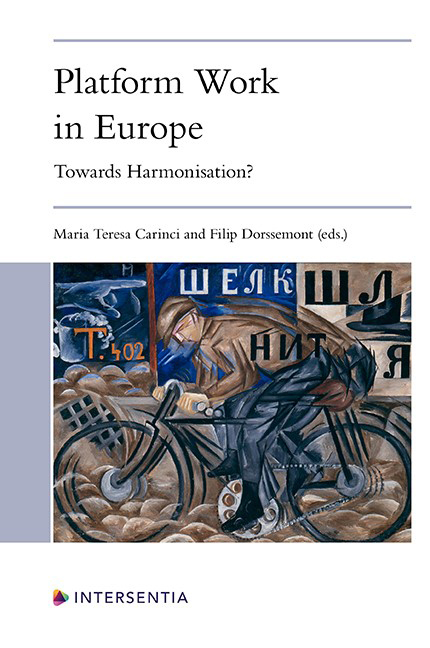Crowdwork and Work On-Demand in the European Legal Framework: Promises and Expectations
Published online by Cambridge University Press: 22 February 2022
Summary
INTRODUCTION
National legal systems are struggling to work out whether, and if so how, employment laws should apply to new forms of non-standard employment including work in the so-called gig economy, performed through online platforms often located in countries different from where the person actually performs her tasks. Many, but by no means all, of those working in these jobs are migrant workers circulating within the EU or coming from third countries.
A number of issues emerge in the EU regulatory space, such as the rise of non-standard work; the breaking down of work; micro-labour; the short duration of work; the use of algorithms to assign work, fix prices and to evaluate workers; uncertainty, insecurity, isolation and precarity; health and safety issues; and discrimination and fundamental rights.
It seems that not all such issues have been addressed by the loose, stipulatory definition of ‘collaborative economy’ adopted by the EU Commission in the 2016 Communication ‘A European agenda for the collaborative economy’. Referred to individuals providing their services, the document defines them as ’service providers who share assets, resources, time and/or skills – these can be private individuals offering services on an occasional basis (“peers”) or service providers acting in their professional capacity (“professional services providers”)’.
In light of such a definition, the EU is now given the chance to better address a number of legal questions arising from the multi-level context typical of the union, taking into account the interests stemming from social partners and other civil society instances.
A much clearer avenue has been taken by the EU Commission with the launch of two rounds of consultation on a possible action addressing the challenges related to working conditions of platform workers. In February 2021, the commission opened a consultation with social partners at the EU level according to Article 154(2) TFEU, already articulating its strategy to develop sustainable growth for platforms and tackle the most pressing issues for platform workers. In June 2021, the commission published a second-phase consultation document, clarifying the possible direction of an EU intervention in the field of platform work.
- Type
- Chapter
- Information
- Platform Work in EuropeTowards Harmonisation?, pp. 173 - 208Publisher: IntersentiaPrint publication year: 2021
- 1
- Cited by

